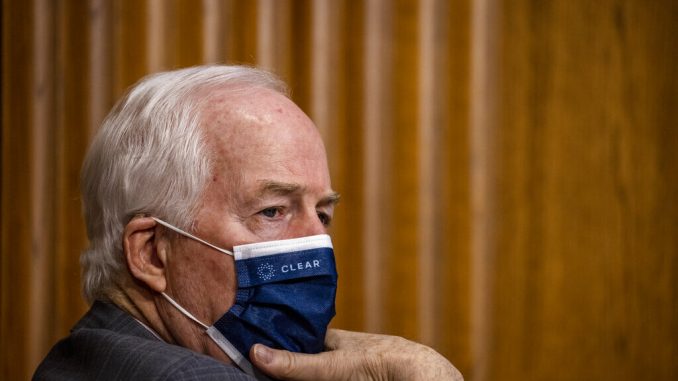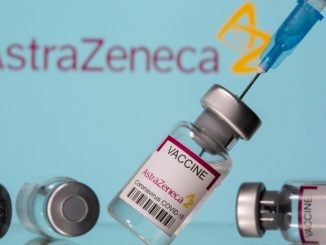

Sen. John Cornyn, R-Texas, listens during a Senate Finance Committee hearing on the nomination of Katherine Tai to be U.S. trade representative on Capitol Hill, in Washington, Thursday, Feb. 25, 2021. (Tasos Katopodis/Pool via AP)
OAN Newsroom
UPDATED 10:28 AM PT – Thursday, February 25, 2021
GOP lawmakers are making bipartisan strides with the Biden administration regarding the strengthening of U.S. supply chains. While speaking to reporters outside the White House Wednesday, Sen. John Cornyn (R-Texas) said the bipartisan effort was going better than COVID-19 relief talks.
“Well you know the political process has it’s ups and downs, and I’m hoping that this is an opportunity for us to do something truly important in a bipartisan way,” he stated. “So far the, the $1.9 trillion COVID-19 relief bill is being passed strictly on party lines.”
This comes as Joe Biden met with a bipartisan group of lawmakers prior to signing an executive order to review domestic supply chains and expand U.S. manufacturing of pharmaceuticals, batteries, minerals and semiconductors. However, Biden said he’s also trying to work with international allies to ensure the stability of global supply chains.
Meanwhile, Rep. Michael McCaul (R-Texas) noted the importance of having U.S.manufacturers producing essential supplies.
“We got to focus on decoupling our supply chain from the Chinese Communist Party, particularly on medical, on rare earth minerals, but semiconductors as well,” he explained. “Our plan we passed on the National Defense Authorization is to start bringing this manufacturing of advanced semiconductor chips back to the United States.”
LR @RepMcCaul on today’s meeting with @POTUS on #semiconductors: “I want to thank @POTUS @JoeBiden for a robust discussion on the importance of securing our vital #semiconductor supply.” https://t.co/Eve4GUcpRD
— House Foreign Affairs GOP (@HouseForeignGOP) February 24, 2021
McCaul went on to say China is the U.S.’s biggest threat and that enhancing the domestic supply chain would strengthen national security while offering more jobs to Americans .
This comes as the coronavirus pandemic exposed the weaknesses of the international supply chain as the U.S. lacked personal protective equipment (PPE) and other medical equipment at the start of the pandemic.






Be the first to comment